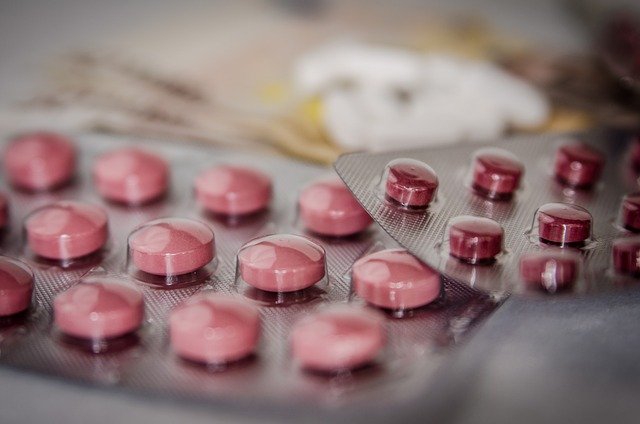Medications That Cause Kidney Disease: What You Should Know
Medications play a vital role in treating many health conditions, but some drugs can negatively affect kidney function over time. Prolonged use or high doses of certain medications may lead to kidney damage, potentially resulting in chronic kidney disease (CKD). Early recognition of symptoms related to kidney problems is important to help reduce further harm and support overall well-being.

What Are Medications That Can Cause Kidney Disease?
Several categories of medications are known to have nephrotoxic effects, meaning they can damage kidney tissue or impair kidney function. Nonsteroidal anti-inflammatory drugs (NSAIDs) like ibuprofen, naproxen, and aspirin are among the most common culprits. These over-the-counter pain relievers can reduce blood flow to the kidneys when used frequently or in high doses.
Certain antibiotics, particularly aminoglycosides such as gentamicin and tobramycin, can cause direct kidney cell damage. Other problematic medications include ACE inhibitors and ARBs in specific situations, certain chemotherapy drugs like cisplatin and methotrexate, and contrast dyes used in medical imaging procedures. Diuretics, while sometimes prescribed for kidney-related conditions, can also cause dehydration and electrolyte imbalances that stress the kidneys.
Proton pump inhibitors (PPIs) like omeprazole and lansoprazole have recently been associated with chronic kidney disease when used long-term. Additionally, some herbal supplements and alternative medicines can contain compounds that are harmful to kidney function, making it essential to discuss all medications and supplements with your healthcare provider.
How to Recognize the Signs and Symptoms of Kidney Disease
Early kidney disease often develops silently, with symptoms becoming apparent only when significant damage has occurred. However, being aware of warning signs can help you seek timely medical attention. Common early symptoms include changes in urination patterns, such as increased frequency, decreased output, or foamy urine that may indicate protein leakage.
Swelling in the legs, ankles, feet, or face can signal fluid retention due to impaired kidney function. Persistent fatigue and weakness may develop as waste products accumulate in the blood and the kidneys struggle to maintain proper electrolyte balance. Other symptoms include shortness of breath, nausea, loss of appetite, and difficulty concentrating.
More advanced kidney disease may present with severe symptoms like chest pain, bone pain, muscle cramps, and high blood pressure. Skin changes, including persistent itching or a metallic taste in the mouth, can also occur. If you experience any combination of these symptoms, especially while taking potentially nephrotoxic medications, contact your healthcare provider immediately for evaluation.
Related Programs for Kidney Health Monitoring
Several programs and initiatives exist to help monitor and protect kidney health, particularly for individuals taking medications that may affect kidney function. Many healthcare systems offer chronic kidney disease management programs that include regular monitoring of kidney function through blood tests measuring creatinine levels and estimated glomerular filtration rate (eGFR).
The National Kidney Foundation provides educational resources and screening programs in communities across the country. These programs often include free or low-cost kidney function tests and educational materials about medication safety. Many hospitals and clinics also offer specialized nephrology services that focus on preventing and managing drug-induced kidney problems.
Pharmacist-led medication therapy management programs are increasingly available to help patients understand the risks associated with their medications and develop strategies to minimize kidney damage. These programs often include regular monitoring, dose adjustments, and alternative medication recommendations when appropriate.
Preventing Medication-Induced Kidney Damage
Prevention remains the most effective strategy for avoiding medication-induced kidney disease. Always inform your healthcare providers about all medications, supplements, and herbal remedies you’re taking, as drug interactions can increase the risk of kidney damage. When prescribed potentially nephrotoxic medications, ask about alternatives and discuss the shortest effective treatment duration.
Staying well-hydrated is crucial when taking medications that can affect kidney function, as dehydration increases the risk of kidney damage. Avoid combining multiple nephrotoxic medications when possible, and never exceed recommended dosages of over-the-counter pain relievers. Regular monitoring through blood tests can detect early signs of kidney function decline before symptoms develop.
Maintaining overall health through proper nutrition, regular exercise, and managing conditions like diabetes and high blood pressure can help protect your kidneys from medication-related damage. If you have existing kidney disease or risk factors, work closely with your healthcare team to develop a medication management plan that minimizes additional kidney stress.
Understanding the relationship between medications and kidney health empowers you to make informed decisions about your treatment options. While many medications carry some risk of kidney damage, the benefits often outweigh the risks when used appropriately and with proper monitoring. By working closely with your healthcare providers, staying informed about potential side effects, and maintaining regular kidney function monitoring, you can significantly reduce your risk of developing medication-induced kidney disease. Remember that early detection and intervention are key to preserving kidney function and maintaining your overall health.
This article is for informational purposes only and should not be considered medical advice. Please consult a qualified healthcare professional for personalized guidance and treatment.




